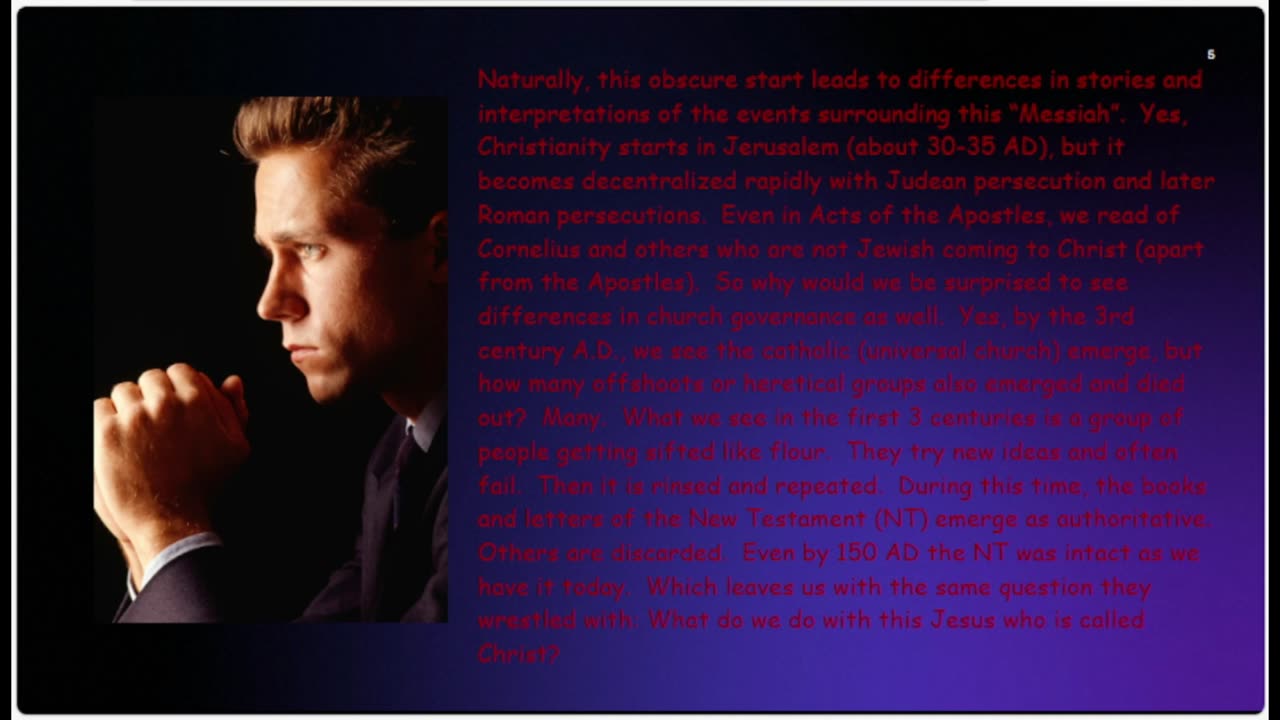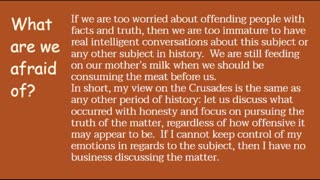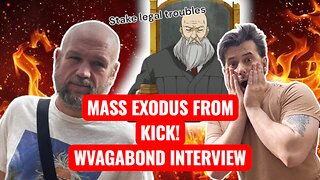Premium Only Content

Where Do We Start Christian History
90 & Out is a video commentary on the Christian Bible with new episodes uploaded periodically.
90 & Out is written, directed, and presented by Timothy Holt.
Timothy Holt serves as youth pastor at Six Points Church in Parker, PA and is the former children's pastor at Westdale Church in Cedar Rapids, IA. Timothy Holt believes the Christian Bible can be read easily but may take some effort to understand. With so many variations out there, how does one start their search for the truth? Hopefully, this channel will help you read and understand the Christian Bible more fully, as well as being entertained.
"The pursuit of knowledge is the beginning of wisdom" -ancient Jewish proverb
Get Merch @ https://www.stickermule.com/ce4c064d751047c
Or https://holtscountertops.etsy.com
Contact us @ contact90andout@yahoo.com
On other platforms:
90 and Out on Facebook
https://www.facebook.com/share/r/15kWKTjtj6/
On Rumble
https://rumble.com/c/c-562805
On YouTube
https://www.youtube.com/@90out10
On Truth Social
Truth Social
Thank you for watching this video and I hope it has impacted your life. Please subscribe for more video content. Comment, like, and share.
Or consider showing support with a monetary contribution using the PayPal link below.
https://www.paypal.com/ncp/payment/VD7ZP9QZB728U
All copyrights and trademarks are owned and retained by their respective holders.
Music was produced by Timothy Holt and is his sole intellectual property.
"Where to start? When discussing Christianity, the obvious place to start is with Jesus of Nazareth, aka the Christ. Born in relative obscurity, this carpenter turned rabbi changed the world. Within 3 centuries of his life, as recorded by the biographers Matthew, Mark, Luke, and John, the world of ancient Rome changed forever, as did all of mankind. When asked who “stands out the most in defining the early church…”, the life, death, and reported resurrection of Jesus of Nazareth is the only real choice. Without this central fact, all of Christianity is a falsehood and grossly so. Everyone who follows for the next 3 centuries (even carrying on to today) must wrestle with this uncomfortable truth: Did Jesus of Nazareth actually rise from the dead and return to life?
2nd century Greek philosopher, Celsus, expressed criticism for Christains only seeking the poor or destitute, but why would this be a problem? Yes, many Christians helped the poor, but Jesus directly instructed his disciples to take care of the poor (see Matthew 25:31-46). Celsus had a problem with this because it went directly contrary to the main way of thinking at the time (and still today). Namely that of “get the most out of life” and “got to move up the ladder”. Celsus and others could not understand why these Christians were willing to be so generous and this generosity naturally impacts the poor more than the wealthy.
But you see, it all goes back to Jesus of Nazareth. Without the resurrection, he would have been treated like all the other failed prophets or messianic figures before or after him. Why follow a dead “savior”? How can the dead save anyone?
Naturally, this obscure start leads to differences in stories and interpretations of the events surrounding this “Messiah”. Yes, Christianity starts in Jerusalem (about 30-35 AD), but it becomes decentralized rapidly with Judean persecution and later Roman persecutions. Even in Acts of the Apostles, we read of Cornelius and others who are not Jewish coming to Christ (apart from the Apostles). So why would we be surprised to see differences in church governance as well. Yes, by the 3rd century A.D., we see the catholic (universal church) emerge, but how many offshoots or heretical groups also emerged and died out? Many. What we see in the first 3 centuries is a group of people getting sifted like flour. They try new ideas and often fail. Then it is rinsed and repeated. During this time, the books and letters of the New Testament (NT) emerge as authoritative. Others are discarded. Even by 150 AD the NT was intact as we have it today. Which leaves us with the same question they wrestled with: What do we do with this Jesus who is called Christ?"
-
 5:46
5:46
90 and Out
2 months agoA Look at the Rise of the Islamic Caliphate and the Crusaders
772 -
 28:36
28:36
Afshin Rattansi's Going Underground
1 day agoDoug Bandow: ENORMOUS DAMAGE Done to US’ Reputation Over Gaza, Trump ‘Easily Manipulated’ by Israel
28.8K29 -
 2:45:13
2:45:13
Barry Cunningham
16 hours agoCBS CAUGHT AGAIN! CHICAGO A MESS! LISA COOK IS COOKED AND MORE LABOR DAY NEWS!
114K51 -
 6:39:17
6:39:17
StevieTLIVE
10 hours agoMASSIVE Warzone Wins on Labor Day w/ Spartakus
34.1K1 -
 10:46:42
10:46:42
Rallied
16 hours ago $18.27 earnedWarzone Challenges w/ Doc & Bob
202K4 -
 3:26:25
3:26:25
Joe Donuts Live
9 hours ago🟢 Lost in Space with My Clones: The Alters Adventure Begins
38.6K5 -
 7:20:22
7:20:22
Dr Disrespect
18 hours ago🔴LIVE - DR DISRESPECT - TRIPLE THREAT CHALLENGE - WINNING AT EVERYTHING
225K12 -
 2:35:33
2:35:33
Chrono
11 hours agoBirthday-eve Stream | Helldivers II
32.6K1 -
 54:40
54:40
BonginoReport
1 day agoLABOR DAY SPECIAL! The Best of Nightly Scroll - Nightly Scroll w/ Hayley Caronia (Ep.124)
139K15 -
 2:39:21
2:39:21
Joker Effect
9 hours agoReviewing the downfall of Kick Streaming. Kick streamers welcome to Rumble! Stake bombshell found!
39.8K1